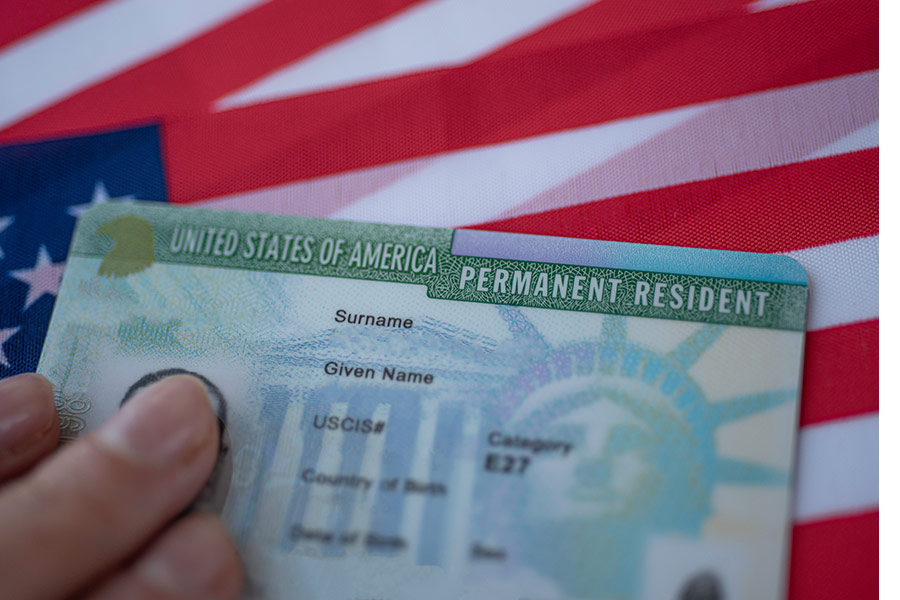

If you have entered the United States without authorization, you may have discovered that you must leave the country to finish your residency process, even if you are married to a United States Citizen. This news can create a lot of fear—especially fear of not being allowed to return to the U.S. Sadly, this fear unnecessarily prevents too many individuals from moving forward with their application for permanent residence.
While a healthy dose of caution is always wise with any immigration application, it is also very important to get the facts about why you could be denied at a U.S. Consulate abroad. Fortunately, the consular officer is not permitted to deny your application “just because.” The officer must point to a specific section of U.S. immigration law to support the denial. Even though there are dozens of laws an officer could use to deny a case, most of the laws come up very rarely. Here are a few of the most common reasons why you might be denied an immigrant visa (residency application) at a consulate:
1) Unlawful Presence—Accruing more than 6 months of unlawful presence, then departing the United States: This is likely the most common eligibility problem faced by immigrant visa applicants because those who are already in the U.S. must leave for their interview, at which point they will trigger a 3 or 10 year penalty. Fortunately, you are permitted to submit a waiver (application for forgiveness) to resolve the problem, and if you are still in the United States, you can do this waiver before you leave for your interview (as opposed to other waivers, which you must submit after the interview).
2) Criminal Issues: Certain crimes can make you ineligible. The intersection of criminal and immigration law is notoriously complicated, so it is important to consult with a reputable immigration attorney if you have ever had issues with the police or any criminal court. Even if a crime initially makes you ineligible to become a resident, you can often qualify for a waiver of the crime and then be granted residency.
3) Misrepresentation: If you have ever given false or misleading information or documentation to an immigration official, you may be found ineligible for misrepresentation (or fraud). As with crimes, a waiver is available for misrepresentation.
4) Human Trafficking (Smuggling): Consulates sometimes find that an applicant has assisted others in some way to enter the U.S. illegally. This finding makes a person ineligible for an immigrant visa, even if the person helped was your own family member. If the person you assisted to enter the U.S. unlawfully was your spouse, parent, son, or daughter at the time, you can apply for a waiver.
5) Deportation: If you were ordered deported/removed and never left the U.S., or if you were deported and have not returned to the U.S., you can apply for a waiver that gives you permission to re-enter after deportation. (In some cases, enough time may have passed for the waiver to no longer be required.)
6) Accruing more than one year of unlawful presence and departing (or being deported), then re- entering (or attempting to re-enter) the United States unlawfully: Unfortunately, this is one eligibility ground that does not allow you to submit a waiver until after you have resided outside the U.S. for 10 years. It applies to people who re-enter or try to re-enter the U.S. after previously being in the country unlawfully for more than one year (even when you add up the time from different trips), as well as to individuals who re-enter or try to re-enter after being deported.
7) Public Charge: As of February 24, 2020, consulates will be applying a new definition of what it means to be “likely” to rely financially on the government. This new definition requires that officers consider numerous factors, rather than just the ability of a sponsor to support the applicant, to determine if they believe the person may receive a public benefit at any time in the future. It is important to review each of these factors with an immigration attorney to determine which aspects of your particular situation will be considered positive or negative for the public charge decision.
As you can see, most of the common ineligibility grounds have waivers available, which helps significantly decrease the risk of applying for an immigrant visa. Be sure to discuss all of these potential eligibility problems with your attorney before beginning an immigrant visa process, and also before you attend the interview abroad, to minimize the chances that your return (or initial) trip to the United States will be delayed.